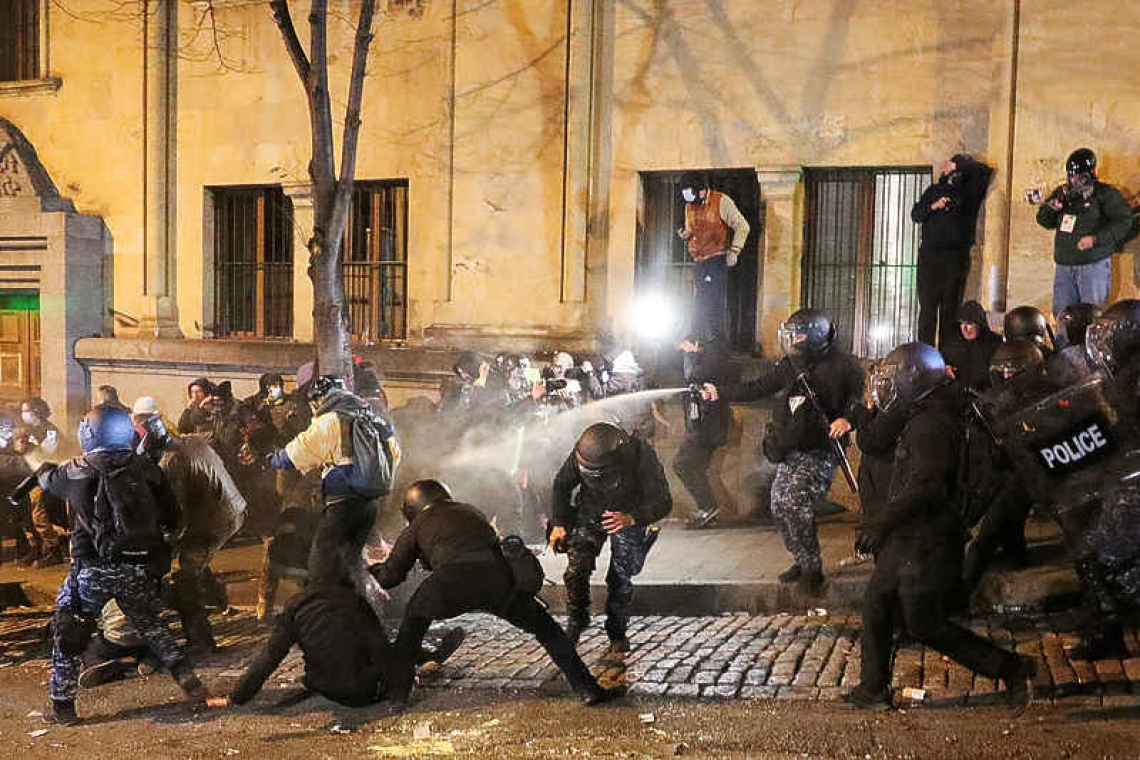TBILISI--Police clashed with protesters in the Georgian capital Tbilisi early on Friday, after the country's ruling party said the government would suspend talks on European Union accession and refuse budgetary grants until 2028.
The country's interior ministry said three police officers were injured.
Police ordered protesters to disperse, fired water cannon and deployed pepper spray and tear gas as masked young people tried to smash their way into the parliament. Some protesters tossed fireworks at police while shouting "Russians" and "Slaves!"
Georgia's relations with the EU have deteriorated sharply in recent months as Brussels has alleged that the government had resorted to authoritarian measures and adopted pro-Russian stands. Thousands of pro-EU protesters had blocked streets in the capital before the altercations began. The country's figurehead president accused the government of declaring "war" on its own people and confronted riot police, asking whether they served Georgia or Russia.
The Georgian Dream governing bloc accused the EU of "a cascade of insults", saying in a statement it was using the prospect of accession talks to "blackmail" the country, and to "organise a revolution in the country".
As a result, it said: "We have decided not to put the issue of opening negotiations with the European Union on the agenda until the end of 2028. Also, we refuse any budgetary grant from the European Union until the end of 2028."
The South Caucasus country of 3.7 million has the aim of EU accession written into its constitution and has long been among the most pro-Western of the Soviet Union's successor states.With months of downturn in relations between Tbilisi and Brussels, the EU had already said that Georgia's application for membership was frozen.
Georgian Dream says it is not pro-Russian, and that it is committed to democracy and integration with the West.It says it still wants to join the EU eventually, but has repeatedly engaged in diplomatic feuds with Brussels in recent years, whilst deepening ties with neighbouring Russia.
There was no immediate formal comment from the EU on Georgian Dream's statement. But an EU official said the impact of Thursday's move was huge, adding the government was doing what the EU had feared and had hoped it would not.
Opinion polls show that around 80% of Georgians support EU membership, and the bloc's flag flies alongside the national flag outside virtually all government buildings in the country.The pro-Western opposition reacted to Georgian Dream's announcement with fury as protesters massed. Local media reported that protests that erupted in provincial cities.







